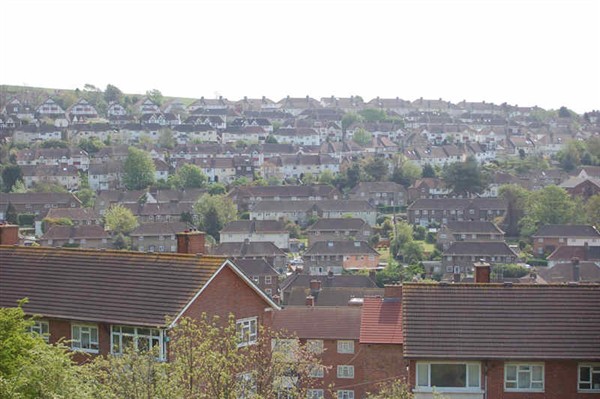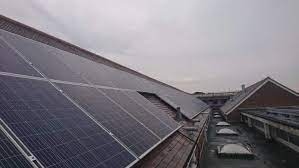Greater Brighton chiefs are planning a mass “retrofit” of tens of thousands of council houses and flats to make them greener and cleaner.
If a new set of proposals is approved, the Greater Brighton Economic Board will set up a £300,000 Retrofit Task Force.
But the task force will make use of “planned works” to tap into a £1 billion housing repairs and maintenance budget as a way of keeping down costs when “retrofitting” takes place.
Retrofitting involves putting in new technology – notably power, heating and plumbing – to existing buildings which are often less energy-efficient than modern new-build homes.
The scheme is part of a wider set of policies aimed at a “carbon-neutral” future.
A report to the Greater Brighton Economic Board said: “The task force has three main objectives – one immediate challenge and two longer-terms objectives.
- Outline how public sector home and building improvements can take place on a mass scale across the region, while identifying opportunities to boost new skills, create good jobs and drive investment in low-carbon industries
- Identify and promote long-term changes to energy usage, increase private sector engagement with the whole-life cycle decarbonisation agenda
- Future-proofing our private and public buildings within the region
…
“These goals are designed to meet Greater Brighton’s carbon reduction targets by 2030 and to support a sustainable economic recovery from the pandemic by creating the conditions and supply chain to support the wider decarbonisation agenda.”
Brighton University would lead the task force, with Lewes District Council overseeing the work.
The project would cover about 28,000 council homes across the city region, including more than 11,000 in Brighton and Hove.
The Greater Brighton region includes Adur, Worthing, Arun, Lewes, Mid Sussex and Crawley councils – although Worthing no longer has any council housing.
Two other councils – Eastbourne and Wealden – could be invited to join the retrofitting drive, taking the potential number of homes up to 35,000.
The task force would be expected to come up with an initial plan next spring and a more detailed project plan by October next year.
The report to the board said: “The task force would provide evidence, not just for work around decarbonising homes, but also to enable us to better understand the much wider climate-friendly economic recovery and regeneration implications of retrofitting.
“For example, more efficiently heated homes should in turn also help address fuel poverty and address skills gaps.
“Approximately 20 per cent of the UK’s current carbon emissions result from the energy used to heat and power our homes, making the need to decarbonise local authorities’ housing stocks more urgent if targets are to be met.
“With approximately 28,000 council houses in our locality (35,000 including Wealden and Eastbourne), this will be a significant challenge.”
One of the challenges for the project team would be to find “economies of scale” – for example, better buying power resulting from several councils working together in this way.
The board plans to look at the Green Homes Grant, the Social Housing Decarbonisation Fund and Ten-Point Plan for a Green Industrial Revolution to try to offset some of the costs.
The proposals are due to go before the Greater Brighton Economic Board at a virtual meeting which is scheduled to start at 10am next Tuesday (20 July).









A good scheme and just the sort of project that the Local Economic Partnership should be involved in. Hopefully, there will be the necessary consultation with Tenants Groups also and a good standard of “retrofit”. This should also help reduce bills into the future so it is actually progressive. What about Long-Leasehold owners of flats within blocks of flats though? How will they be paying and what choices do they get?
Given the failure rate of B&H on major projects ( i360, Madeira Terrace ) I don’t hold out much hope for this one. Cue the Benny Hill theme.